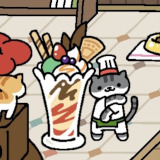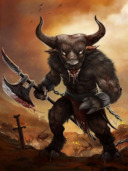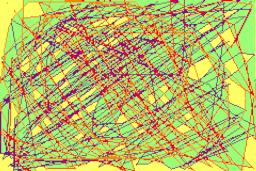
- Member Since 15th Aug, 2017
- offline last seen March 6th
Yumyums23
i have so many unread things but hardly any energy (don't read any of my fics bc they're all terrible and old)
Yumyums23
Joined 15th Aug, 2017 ·
Offline
Join our SubscribeStar to remove these adverts!
Also LikedSimilarAuthor
- Dsarker · 92k words · 159 17 · 3.8k viewsIn the year of Our Lord Thirteen and twelve, five Templars broke through a French roadblock, and disappeared. This is their tale.
- A wolf awakens and is destined to become the protector of the Everfree forest, and maybe more.Undead Equestrian Writer · 13k words · 262 17 · 5.4k views
- Birdring · 4.3k words · 24 6 · 1k viewsThere will come a day when these "Friendship" ideals will collapse under their own weight so listen up, you bunch of bastards. With me you cannot. I challenge the filthy, the sows, the dogs, the scoundrels. I'm a rebel.
- LoZLttP13 · 237k words · 215 30 · 7.7k viewsA powerful young Sorceress, her faithful apprentice, and her five new friends are tasked with preventing the return of the all-powerful God of Chaos.
- Centurion Pike-Wall · 65k words · 475 19 · 6.1k views"If a man dies that another should live, that man's spirit shall eat at the Emperor's table. B-but... what about me?"
- TasteDaRainbow · 77k words · 60 6 · 1.9k viewsBravery doesn't mean you're not scared. It means you'll go anyway. Join Twilight and her friends' adventure in the middle of World War 2.
- The school made a mistake. They soon learn that it can't be fixed with friendship lasers.Witchrblizzad · 2k words · 267 43 · 23k views
- Yumyums23 · 1.1k words · 9 3 · 759 viewsSweetie Belle has an obsession.
- Yumyums23 · 1.1k words · 189 viewsSweetie Belle is struggling with an essay when one of her best friends, Apple Bloom comes to help her.
- Yumyums23 · 1.6k words · 504 viewsShort stories where Scootaloo talks to her mother about various things
- Yumyums23 · 1k words · 536 viewsA bunch of little stories featuring the Applebloom fillies.
Featured In1
Join our SubscribeStar to remove these adverts!
Join our SubscribeStar to remove these adverts!
Stats
Page generated in 0.063 seconds
Total duration
667 users online
792,767 hits today, 2,004,447 yesterday
FIMFiction
My Little Pony: Friendship is Magic Fanfiction
Designed and coded by knighty & Xaquseg - © 2011-2024
Follow & Support Us
![]() Support us
Support us
SubStar
Chat!
Discord
Follow us
Twitter
MLP: Friendship is Magic® - © 2024 Hasbro Inc.®
Fimfiction is in no way affiliated with or endorsed by Hasbro Inc.®















You might want to put the Anthology tag on this.
9124217
I just realized the Anthro and Anthropology tags had different meanings
Thank u for letting me know about this |:>)
I think this is a wonderful chapter. It plays into the larger theme of the story, yet it acts so brilliantly as a self-contained exploration of not only Fluttershy, but humanity as a whole. I have a feeling some of the less intellectually inclined among us will scoff at this 126-word display of literary mastery, so I'll do the author a favor and explain its utter transcendent genius so they don't have to.
The first paragraph of the story throws us into Fluttershy's final day without wasting our time by describing the mundane and inconsequential details that her days normally entail. There is no mention of the weather, or her daily chores, or anything of the sort. The entire chapter takes place inside within the confines of the cottage, in fact. And though it isn't explicitly stated, one can imagine that all of the intense action occurs within a single room. This detail represents how our culturally influenced ideas of adventure and significance don't necessarily conform to reality. Nobody would, upon hearing that this chapter takes place within a single location, imagine that its events are colorful, significant, and life-changing for the characters involved. They would not assume that any existential revelations impact the cast, because how could such an adventure happen solely within the cottage? And yet, the author of this story implores us to set aside our biases and accept that, for Fluttershy and Angel, this otherwise average day carries with it deep and dire implications.
In the second sentence, we're informed of a deep, dark secret that Fluttershy has been harboring for years untold. Sequestered away from pony society in her forest-side cottage, she has developed romantic (and, we can wager, perhaps sexual) feelings for her pet rabbit. In an instant, countless unresolved questions about her character are answered: Does she feel more comfortable with ponies, or animals? Animals. Does she bother to conform to what pony society expects of her (i.e. finding a pony mate and raising a pony family)? No, or at least, not anymore. What sized phallus does she prefer for the purposes of copulation? Approximately rabbit-sized. Without even hearing a word of dialogue from her, her ins and outs are put on full display for the reader, and we are tasked with answering a question of ourselves: Do we accept Fluttershy the way she accepts herself? Or do we cling to the knee-jerk disgust at her deviant, carnal revelation?
Also significant is the fact that this chapter (if the word "chapter" can accurately encapsulate such pure, unadulterated literary holiness) does not contain any dialogue. The author invites us beautifully into the minds of the characters without the crutch of forcing them to narrate. It's true that Fluttershy is, in this setting, at home with nonverbal animals, and thus has no reason to speak aloud, but it still goes to show just to what extent this author towers above ordinary writers. Sure enough, the likes of J. K. Rowling, Tolstoy, and Shakespeare all utilize speech in their stories. But this author is not beholden to such a rudimentary narrative limitation, and their story flourishes as a result, as if it creeps into the readers' hearts and whispers gentle words of love to our innermost psyches. Truth be told, I experienced a fit of convulsions upon finishing this chapter the first time; it was as if the entirety of my mind was unable to process exactly what divine wonder it had taken in, and its only recourse was to physically punish me for subjecting it to this beauty that no mortal mind was meant to perceive. Despite this, though, I read and re-read this chapter for sixteen straight hours, never pausing to eat or sleep, for it filled a void in my soul. I had never known I had such a hunger, and still this story satiates me.
The story continues to reveal that Fluttershy has decided to give in completely to her desires. Taking the time to fully feed her animals first (because as the embodiment of Kindness she still places the well-being of others above her own), she initiates a delicate dance with her rabbit. And hark! The beast accepts the invitation, the dirty, blasphemous affront to pony decency. The chapter describes them as "lovers," indicating that they mutually desire each other in the most unholy and exciting of ways. Truly Celestia would recoil in shock and disgust upon seeing the two wayward dancers; they care not. They simply proceed according to the inclinations of their squalid, sinful hearts, throwing aside all pretenses of righteousness. For once you realize the craving present in your heart-of-hearts, the chapter says, all else melts away. The dance between Fluttershy and Angel Bunny is surely among the most elegant and beautiful metaphors I have ever seen. Since reading the chapter, even merely thinking about rabbits makes me shiver as I feel a satisfying mixture of fulfillment and envy, for I know that never in my days will I experience the sensation of total compassion and freedom that Angel Bunny and Fluttershy blissfully delight in.
But alas, life is not perfect; even for those madly and completely in love, it can introduce problems unforeseen that destroy even the best-laid of plans and preparations. As we see, Fluttershy is caught up in her ecstatic dance to the point where she loses her bearings and her sense of time and place, and fate punishes her for daring to dream of greater, more pure things. She twirls right into a wall with such force as to puncture her head, rendering her body but a mangled shell of its former demure and graceful self. Her vital fluids are catapulted this way and that, coating the cottage completely in a cascade of crimson. This unfortunate outcome acts as an example of poetic irony: just as she desired during her dance to envelop Angel Bunny in a sea of warmth and tenderness, she now envelops him physically in a sea of warm fluids. It is in this way that the reader can take heart, for we know that Fluttershy has not perished in vain. Though she will never understand the result of her untimely demise, she nonetheless fulfilled her deep craving to show Angel Bunny precisely what he means to her. Perhaps, this author says, premature tragedy is the only way we as people can lead our partners into the culmination of what it means to cherish another. Even in her death, Fluttershy teaches. The wise among us will begin too to desire the sweet call of the grave so that we may do as she has done, though we know in our hearts that none may come as close to divine, loving perfection as she.
Upon the realization that his true love has expired, Angel Bunny has an interesting an unexpected reaction. He does not cry; he does not mourn; he does not turn to the heavens and curse the pony gods, defying their will and insisting that he knows better how the world ought to be. He simply turns to the corpse, as if marveling that such a mess can still contain traces of the beauty of the living Fluttershy, and plants a kiss on her inanimate lips. A sweet gesture to be sure, until we realize that the blank space following this is but a ruse, a deception, a means to lure us into a false sense of security. For after we gaze past this blankness, the story reveals its hand in the most surprising of ways. Angel Bunny chooses to let go of his attachment to Fluttershy and consume her remains along with his beastly companions. Fluttershy's love had the potential to elevate him above his carnality and instinctual brutality, but upon her death, he releases himself, and his mind falls back into the pit of animalism. But it is not unchanged, in the end: Angel, a rabbit, an herbivore, begins to lick up Fluttershy's fluids. The sheer shock and desolation he feels at her loss has transfigured him into a monstrous facade of who he used to be. No longer is he a lover, and no longer is he a rabbit. He has become an abomination, following no known natural laws. Having seen both sides of the mind, having experienced both the simple life of a rabbit and the satisfying, exciting life of a pony-lover, he rejects both, electing to take his destiny into his own hands. If he cannot have his love, he will prove to fate that it does not control him. He will not surrender to his old life; he will forge a new one. This moment shows us that Angel Bunny possess a reserve of inner strength and bravery that most humans cannot even conceive of. I think it's safe to say that no single person has ever acted with such stoic fortitude in the face of adversity. But it should be so, because no human has experienced nearly the magnitude of loss that Angel has.
Regarding the story's structure, an astute reader will notice that the chapter oscillates between past- and present-tense. Far from a mere error in the editing process, this subtle incongruity forces the reader into a state of apprehension. Even before tragedy strikes, the reader understands that not all is well. By violating the standard practices of tense, the author stands firm and tells us, "this is not right, this is not okay, but it is as it is." Thus we are invited to ponder what else in the story is an affront to our sensibilities. Are we offended by the bestiality? Are we sickened at Fluttershy's mid-dance demise? The incoherent tense usage prompts us, as readers, to examine our feelings for the chapter's events more deeply, dedicating as much thought to it as it deserves.
When all is said and done, I can confidently say that humanity has never before produced a literary work of more raw, emotional perfection, and I daresay no one will soon come close to matching it. As soon as I publish this comment, I'm going to read through it for a few more hours, because as is the case with all other works of masterful significance, there is always more to the story's events than meets the eye.